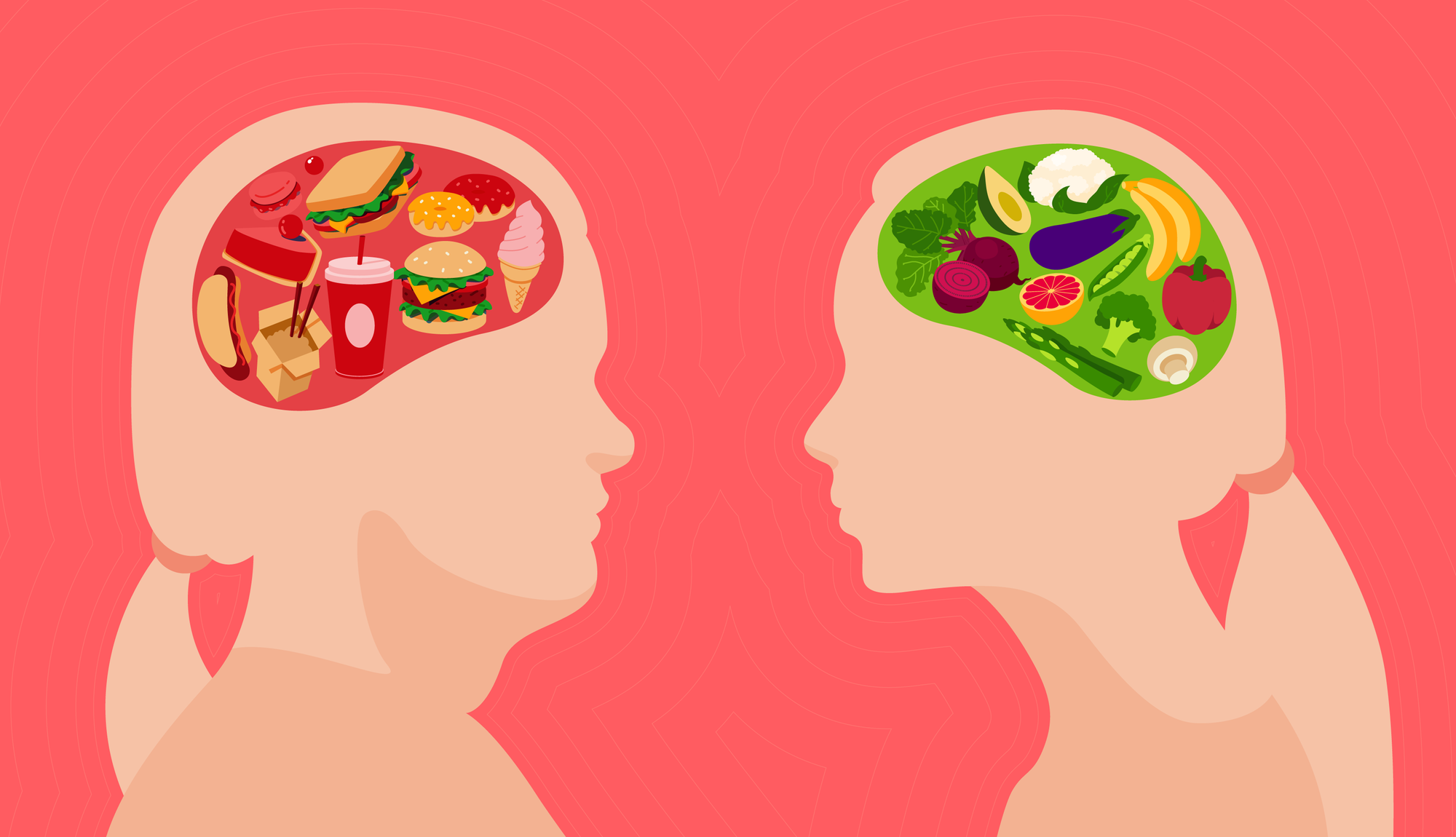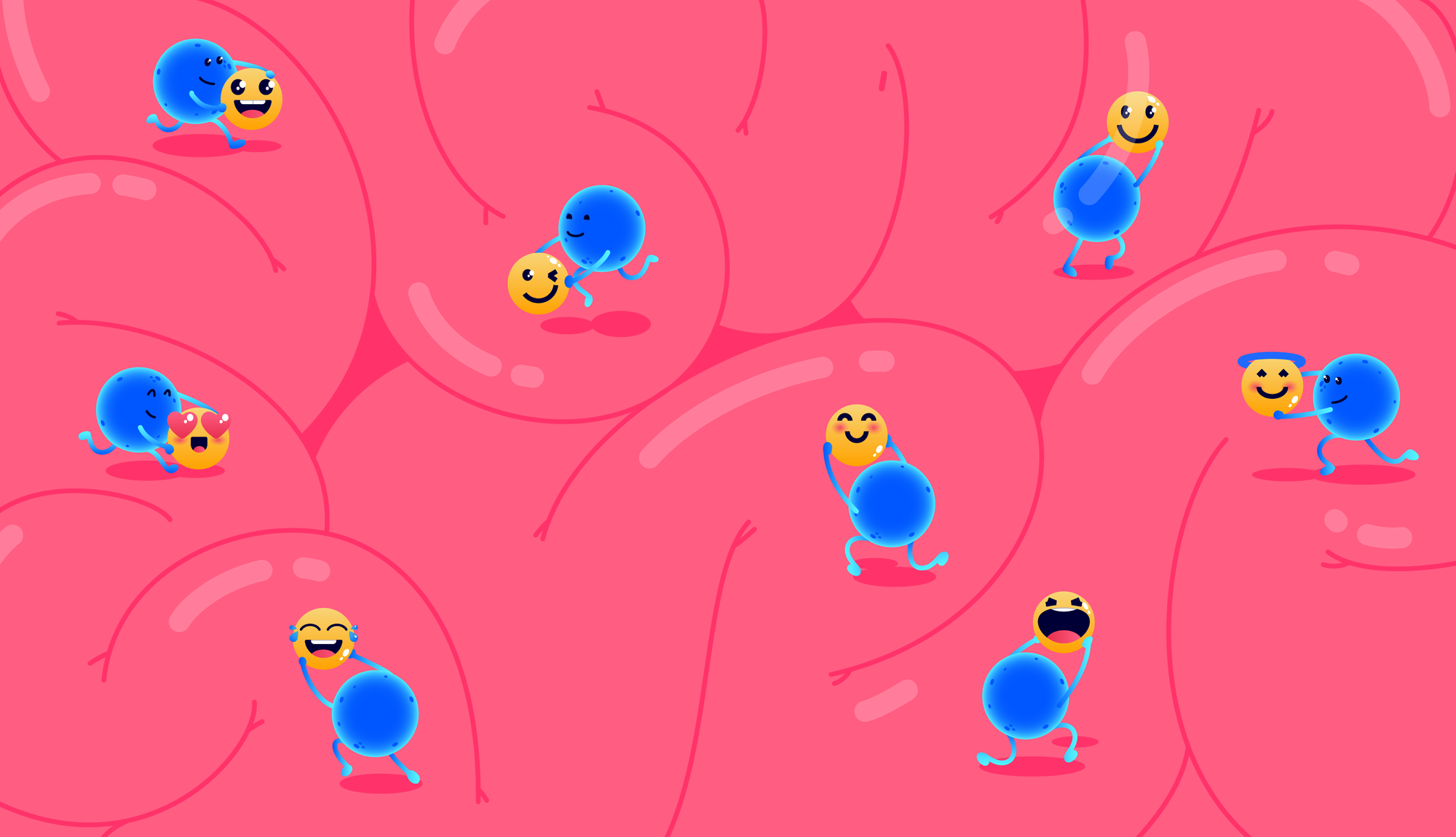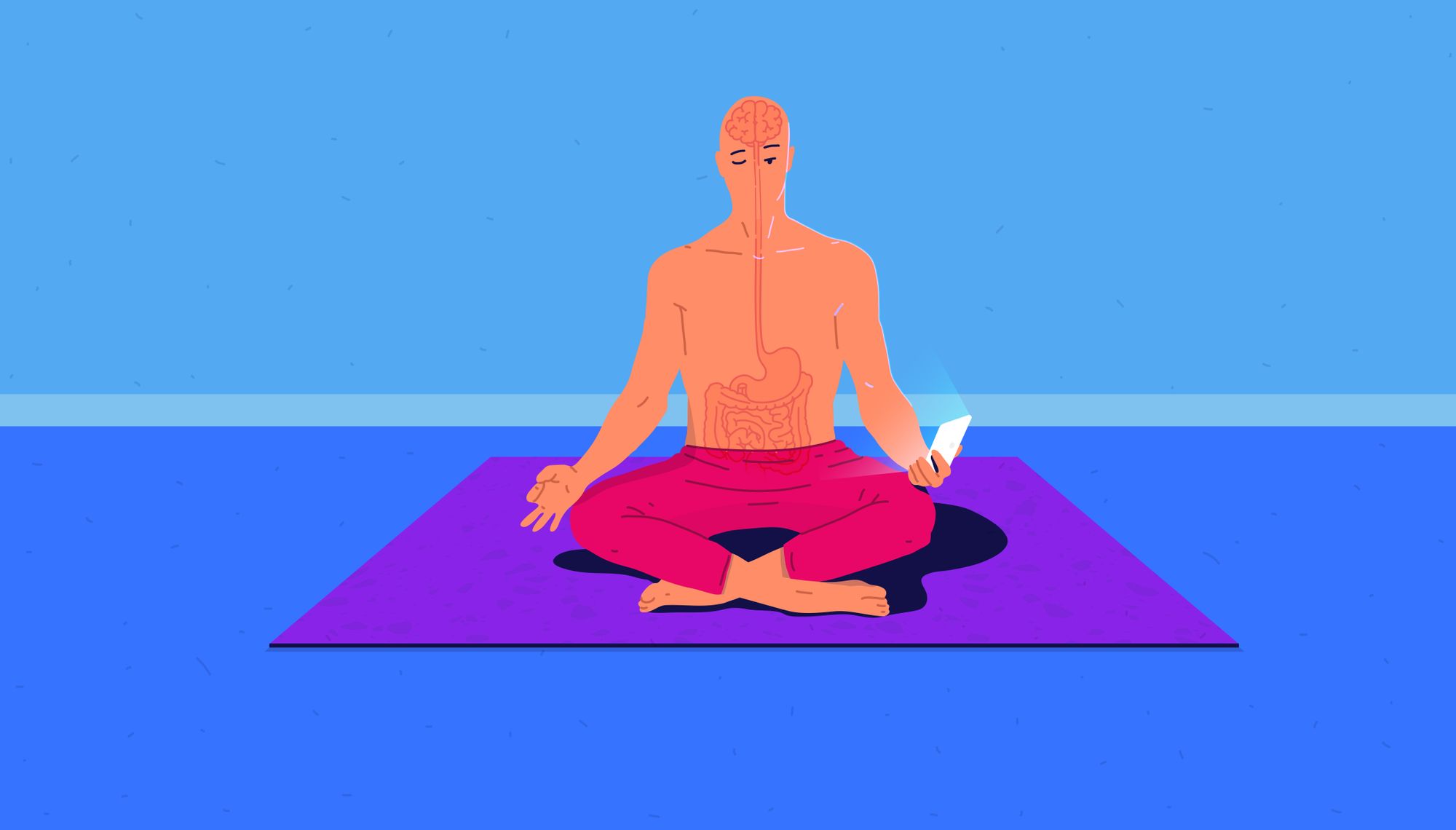Diet doesn’t just impact your whole body health, it can influence your mental health too. Discover how to care for your brain with mindful eating in this article.
Most people know that eating a balanced diet is good for your physical health, but what about your mental wellbeing? New studies are shining light on the impact of food on mental wellness and its association with common mental health conditions, especially anxiety and depression.
Table of contents
- The link between food and mental health
- Essential nutrients for mental health
- The importance of proper hydration
- Best diets for mental health
- 1. The Mediterranean diet
- 2. Short-term low-cal diet
- 3. Intermittent fasting
- 4. Eat the rainbow diet
- Final word on mental health diets
Research shows that poor diet can play a role in worsening these mental health disorders, while the Mediterranean diet, rich in vegetables and olive oil, can improve the symptoms of anxiety and depression.
Dive into the facts on diet and mental health, as well as some of the best foods to improve your overall physical and mental wellbeing in this article by Sara Anderson from the Ezcare clinic in San Francisco.
☝️DISCLAIMER☝This article is for informational purposes only. It is not intended to constitute or be a substitute for professional medical advice, diagnosis, or treatment.
The link between food and mental health
Food is an essential contributor to proper body functioning. Like any other body part, the brain functions best with good food as well. A proper diet (with vitamins, antioxidants, and other micronutrients), nourishes and protects the brain from the oxidative stress of free radicals that can damage the brain cells.
Similarly, eating processed and refined foods makes it difficult for the brain to eliminate waste products. Indeed, plenty of studies have shown that poor eating habits, like high-fat and high-sugar diets, can harm the brain, impairing its normal functioning.
This isn’t just a factor in neurodegenerative disorders like Alzheimer’s – oxidative stress has been identified in anxiety and depression too. Diet also significantly affects the proper functioning of neurotransmitters, especially serotonin, because your gut is lined with neurons.
Approximately 90% of serotonin is produced in the gastrointestinal tract with the help of your gut bacteria.
Because your gut and brain are intimately connected, diet matters a great deal when it comes to mood and mental wellbeing. Take the Mediterranean diet - it contains fresh fruit, unprocessed grains, and lots of vegetables, which have anti-inflammatory properties, with modest amounts of dairy, lean meat, fish, and seafood.
On the other hand, Western diets are full of highly refined sugars, meat, and fats, which notably have detrimental effects. It is considered a pro-inflammatory diet, which many studies have found to be associated with depression, depressive symptoms, and anxiety.
☝️FACT☝️ The good bacteria in your gut thrive on plant foods that are rich in prebiotic fibers. When you feed them right, they keep your gut healthy and protect against inflammation. Find out what to eat for your gut bacteria with the Atlas Microbiome Test.
Essential nutrients for mental health

If your body isn’t getting enough vitamins and minerals, it affects physical and mental wellbeing. If you’re eating a balanced diet with fruits and vegetables, you shouldn’t need to worry too much, but a Western diet lacks nutrients and can cause deficiencies.
Here are some nutrient deficiencies that can affect your mental health:
-
Iron deficiency has been associated with attention-deficit/hyperactivity disorder in children. Iron deficiency anemia caused by exercise is also associated with depression.
-
B vitamins: deficiencies of specific B vitamins are associated with depression, and supplementation has been shown to improve mood in patients with depression.
-
Selenium deficiency is associated with lower mood, but supplementation has been shown to combat anxiety and improve mood.
-
Zinc protects the brain against free radical damage. Lower zinc levels were found in people diagnosed with depression.
The importance of proper hydration
About 60% of the human body is made up of water, and your brain is about 73% water. That’s why hydration is so important to your body and brain health. There are actually quite a few studies about dehydration, mood, anxiety, and depression.
One 2014 study found that drinking more water (for people who drank less than 1.2L per day) improved fatigue and alleviated confusion and bewilderment.
Other research has found that drinking plain water can lower the risk of depression and anxiety in adults. Even just 1.36% dehydration in young women caused headache symptoms and lowered mood, concentration, and perceived task difficulty.
Best diets for mental health

One landmark clinical trial, the SMILES study, demonstrated that a diet rich in plant-based foods may be a future treatment option for major depressive disorder. So even though there is no specific diet for mental health, clearly there are some eating patterns that are better for mental health than others.
Mediterranean Diet
This diet is also routinely a recommended choice for individuals looking to achieve general health wellbeing. Here are some of the essential components of the Mediterranean diet that promotes mental health.
Of all the healthy diets, the Mediterranean diet has strong evidence of promoting better mental health and combatting anxiety and depression.
- Olive oil
Olive oil is a powerhouse for brain health. A plethora of research shows that extra-virgin olive oil can improve memory and cognition, while combating oxidative stress. It even seems to be able to alleviate depression and anxiety by altering the serotonin and dopamine pathways in the brain.
- Omega-3 fatty acids
| Nutrient | Sources |
|---|---|
| Omega-3 fatty acids | Salmon, mackerel, other cold-water fish, chia seeds |
The brain is largely composed of fats, and the body cannot produce sufficient essential fatty acids on its own. Important omega-3 fatty acids include docosahexaenoic (DHA) and eicosapentaenoic acids (EPA), from fish and other sources. These fatty acids boost the brain's ability to hold both short-term and long-term memory. It also seems to improve mood and lower anxiety.
- Whole grains
| Nutrient | Sources |
|---|---|
| Whole grains | Wheat, rye, barley, oats |
Whole, unrefined carbs are essential for health. Whole grains are a known rich source of tryptophan, an essential amino acid that promotes serotonin production. More importantly, they nourish the gut microbiome that maintains gut health, which contributes to a healthy central nervous system.
- Walnuts
If you’re prone to snacking, try replacing sugary foods with walnuts. Walnuts are a source of antioxidant nutrients, which help in preventing the oxidation of brain cells. They also promote the growth of new neurons, which are essential in improving and maintaining mental health.
- Beans
Most people aren’t aware of how beans can help maintain brain health. They contain lots of fiber (for your gut bacteria) and antioxidants, which stabilize the blood sugar levels. They also contain thiamine (vitamin B1), which is used to make acetylcholine, a neurotransmitter involved in memory.
But the Mediterranean diet isn’t just made up of these foods. Part of the reason it is so beneficial for your body (and your brain) is because it’s very diverse. So don’t restrict yourself, fill up on leafy greens, fruit, weird vegetables you’ve never tried before, add a dash of olive oil, and have fun with it.
Eat the rainbow diet

Polyphenols are plant nutrients that have anti-inflammatory and antioxidant properties for the human body. They have also shown effectiveness in preventing depression, improving depressive symptoms, and promoting overall mental wellbeing.
There are hundreds (if not thousands) of plant nutrients that can promote physical and mental health. The most effective way to harness the power of plants is to eat the food rainbow with red, orange, yellow, green, and purple plant foods. Check out this comprehensive eat the rainbow guide with food lists here.
Low-Calorie Diet
Short-term calorie-restricted diets and fasting have shown promising results for depression, anxiety, and low mood. A low-calorie diet involves consuming less energy (and therefore calories) than you usually would.
Intermittent fasting
There is evidence that intermittent fasting can also improve mood and mental health. Some studies have linked fasting to improved mood and a sense of alertness, tranquility, wellbeing, and happiness.
A recent study involving 50-year old men compared a controlled group with those who engaged in intermittent fasting. The results indicated that those who participated in fasting had a significant reduction in tension, anger, confusion, and mood problems.
The final word on diet and mental health
Without a doubt, good nutrition has significant effects on individuals' mental health. Eating a well-balanced diet helps the brain think clearly, remain alert, and improve concentration and attention span.
On the other hand, a bad diet often leads to fatigue, slow decision-making, and slower reaction time. Poor nutrition also heightens the risks of stress, anxiety, and depression. Fortunately, it’s not hard to make beneficial changes to your diet.
- Eat lots of whole plant foods with fiber and essential nutrients.
- Always make sure you’re getting enough water every day.
- Try to avoid fast food and processed foods
- Home-cooked meals are healthier than anything you can buy.


















